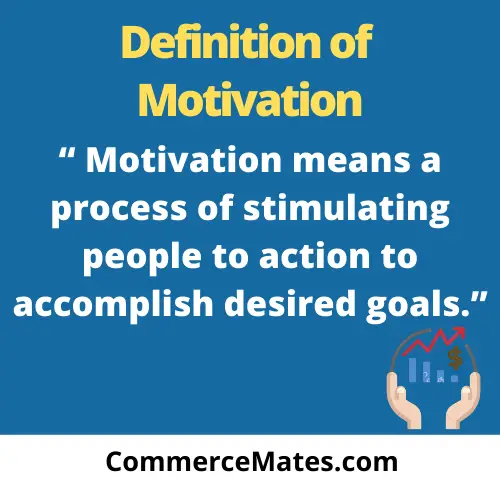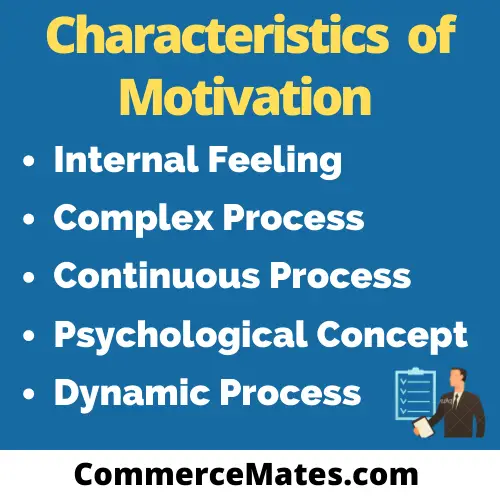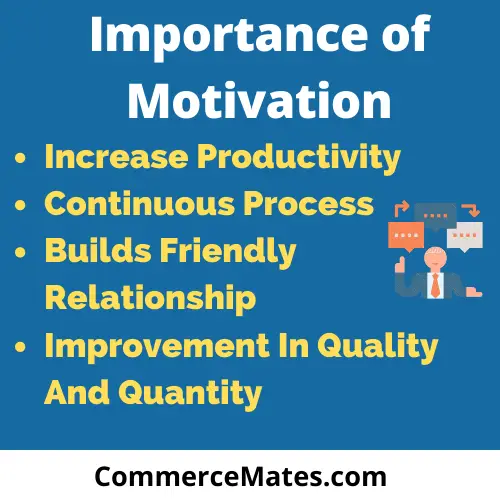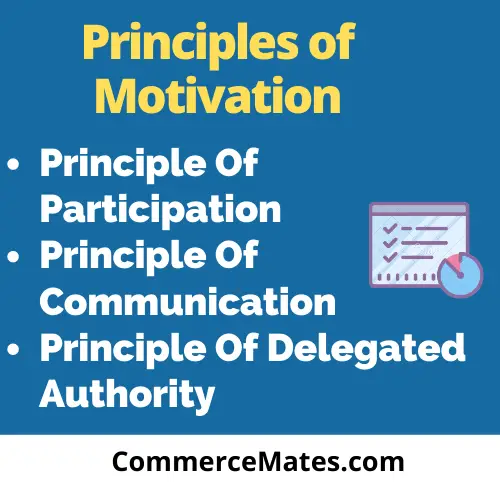Contents
What is Motivation in Management
Motivation refers to the way a person is enthused at work to intensify his desire and willingness to use his energy for the achievement of organisational objectives . It is something that moves a person into action and continues him in the course of action enthusiastically. The role of motivation is to develop and intensify the desire in every member of the organisation to work effectively and efficiently in his position.
Characteristics of Motivation in Management
Motivation is an Internal Feeling
Motivation is an internal feeling of an individual. It can’t be observed directly ; we can observe an individual’s actions and then interpret his behaviour in terms of underlying motives. It is based on human needs which generate within an individual. Needs are feelings in the mind of a person that he lacks certain things such feelings influence the behaviour and activities of the individual.
Motivation is Continuous Process
It is not a time bound programme or a touched go affair. Human needs are infinite . As soon as one need is satisfied new ones arise . In the words of McGregor , “man is a wanting animal , as soon as one of his needs is satisfied another appears in its place. This process is unending” Satisfaction of one need gives feeling of another and the Process goes on.
Motivation Is Complex Process
There are no universal theory or approach to motivation. Individuals may differ in their motivation even though they are performing the same type of job. Therefore, a manager has to analyse and understand a variety of needs and has to use a variety of rewards to satisfy them. He should not expect overnight results.
Motivation causes goal-Directed Behaviour
A person behaves in such a way that can satisfy his goals or needs . A person will work so long as he feels his actions are fulfilling his strongly felt needs . He will not pursue the activity and will lose interest in his work if he feels that it is not satisfying his needs.
Motivation may be financial or non-financial
The form of motivation depends upon the type of needs. Financial incentives include pay, allowances,bonus and perquisites. Non-financial incentives consist of recognition, praise,responsibility,participation in decision-making,challenging job, and etc.
Motivation Is Dynamic Process
Needs and motives of an individual change from time to time, even though he may continue to behave in the same way . For example , a temporary worker may produce more in the beginning to become permanent. When made permanent, he may continue to produce more, this time to get a promotion .
Techniques of Motivation in Management
Financial Incentives
These are a source of satisfaction of both the basic needs and growth needs.
These are however, ineffective where basic needs are reasonably satisfied. Pay, bonus, profit sharing etc. are common financial incentives.
Non-Financial Incentives
Money alone is not sufficient to satisfy the higher order needs.A man is not motivated by money alone. He can an also be encouraged by factors other than money e.g. the
job, supervision, status, participation, recognition, etc.




